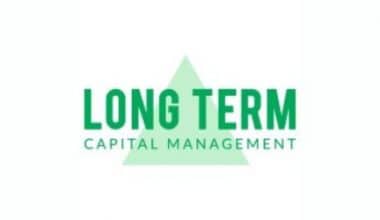Stocks are a critical component of long-term wealth accumulation, as any financial professional will tell you. Stocks can appreciate exponentially over long periods of time, but their day-to-day volatility is difficult, if not impossible, to predict with complete accuracy. As a result, the need to learn how to make money from the stock market naturally arises even for beginners. As long as you stick to some tried-and-true principles and exhibit some patience, it’s actually rather simple.
What Is the Stock Market?
Shares of publicly traded corporations can be bought and sold on various exchanges collectively known as the stock market. Exchanges and OTC markets, both governed by certain rules, are used to facilitate these kinds of monetary transactions.
The terms “stock market” and “stock exchange” are frequently used interchangeably but mean essentially the same thing. Participants, even beginners in the stock market, learn how to make money by buying and selling shares on one or more of the stock exchanges that make up the stock market.
The New York Stock Exchange (NYSE) and the Nasdaq are the two largest stock markets in the United States.
How the Stock Market Works
Market participants can trade stocks and other qualified financial products with little to no operational risk in a regulated and safe stock market. The stock markets function as primary markets and secondary markets, both of which operate in accordance with the norms set forth by the operator.
The stock market serves as the main market, where corporations can issue and sell shares to the public for the first time through an IPO (IPO). Participating in such an endeavor aids businesses in securing the required funding from investors.
For the purpose of raising capital, businesses often split themselves into smaller pieces called “shares” and offer those pieces for sale to the general public at a set price per share.
The stock market provides such a platform by which a company’s shares may be bought and sold by interested parties. Following an initial public offering, a publicly traded company may conduct additional offers, such as a rights issue or a follow-on offering, to raise capital. They may decide to delist or repurchase their stock.
Investors will buy shares of a company if they think its price will go up or if the company will pay dividends. The stock exchange provides a needed service to the company and its financial backers in the form of a fee in exchange for facilitating the capital-raising process.
The stock market also facilitates the “secondary market,” when investors trade in and out of their own assets.
Standard & Poor’s (S&P) 500 index and the Nasdaq 100 index are two of the many market-level and sector-specific indices kept current by the stock market or exchange.
What Are the Functions of a Stock Market?
The stock market makes sure that every trade is fair and that all relevant data is available.
The stock exchange ensures that all market players may view information on buy and sell orders, which aids in the accurate and transparent pricing of securities. The market also guarantees the swift and accurate pairing of interested buyers and sellers.
In order for stock markets to function properly, price discovery—a process in which the price of a security is decided through negotiations between buyers and sellers—must be allowed to take place. Orders should be available instantly to those who are qualified and eager to trade, and orders should be executed at a reasonable price thanks to the market’s inherent efficiency.
There are many different types of stock market traders, such as market makers, investors, traders, speculators, and hedgers. While investors typically purchase stocks with the intent of holding them for the long term, traders sometimes enter and exit positions quickly, sometimes within a matter of seconds. Hedgers may engage in derivatives trading, while market makers supply the market with the cash it needs to function.
How To Make Money In Stock Market For Beginners
In this section, you will learn how to make money in the stock market even for beginners.
#1. Buy and Hold
Long-term investors often use the adage, “Time in the market beats timing the market.”
Simply put: what does that entail? In a nutshell, the buy-and-hold investment strategy entails avoiding frequent stock market transactions in favor of holding securities such as stocks for an extended period of time (a.k.a. trading).
That’s significant because investors who dip in and out of the market multiple times every week, month, or year often miss out on the best annual gains. You don’t think so, do you?
Take into account the following: According to Putnam Investments, investors who kept their money in the stock market for 15 years until 2017 averaged an annual return of 9.9 percent. However, your prospects of making a profit from the market were diminished if you often entered and exited the market.
Those who missed out on just 10 of the finest trading days during that time saw an annual return of just 5%.
Those who didn’t invest on the 20 best days saw a paltry 2% annual return.
The average annual loss due to missing the 30 best days was -0.4%.
If you miss the market’s greatest days, your returns will be far smaller than if you had stayed in. It may seem like the obvious approach would be to always have money invested for those days, but it’s impossible to know when they’ll come (and good days of performance might sometimes follow bad days of performance).
That’s why it’s crucial to maintain your stock holdings over the long term if you want to profit from the market’s peak performance. In order to do this, a buy-and-hold investment strategy should be adopted. (It also helps you save money on your taxes because you may be eligible for a lower capital gains tax rate.)
#2. Opt for Funds Over Individual Stocks
Diversification is a tried and true strategy for lowering overall investment risk and increasing the probability of positive returns over the long term, as most seasoned investors well know. Consider it the investment world’s version of the adage “don’t put all your eggs in one basket.”
Stock funds, such as mutual funds or exchange-traded funds (ETF), are often recommended by professionals to maximize diversification, despite the fact that most investors choose either individual equities or stock funds.
You can achieve the same level of diversity as you would with a fund by purchasing a number of different stocks, but doing so successfully may require a considerable time commitment, a high level of investing expertise, and a substantial financial outlay. It’s not uncommon for a single share of a popular stock to cost several hundred dollars.
Contrarily, with a fund, you can purchase a little piece of hundreds or even thousands of separate investments at once. While it’s tempting to put all your eggs in one basket and hope that it turns out to be the next Apple (AAPL) or Tesla (TSLA), few investors, pros included, have a good history of picking winners.
That’s why most financial advisors advise their clients to put their money in index funds that simply replicate the performance of the NSE Nifty or BSE Sensex. This puts you in the best position to reap the stock market’s yearly average gains of about 10% as painlessly (and cheaply) as possible.
#3. Reinvest Your Dividends
Dividends are a common way for companies to distribute their profits to their stockholders on a regular basis.
Though the dividends you receive may appear insignificant at first, they have contributed significantly to the stock market’s development over time. Since its beginning, Nifty 50 has returned roughly 12%; with dividends reinvested, that figure increased to over 16%. The reason for this is that reinvested dividends allow you to purchase additional shares, increasing the rate at which your earnings grow.
For this reason, many financial experts advise their clientele to reinvest profits rather than consume them immediately. You can typically enroll in a DRIP (dividend reinvestment program) at your broker to have dividends automatically reinvested.
#4. Choose the Right Investment Account
The account you choose to hold your investments in is just as vital to your long-term investing success as the investments themselves.
The National Pension Scheme is only one example of an investment account that provides favorable tax treatment to its holders (NPS). Any gains or income made while the funds are in the account are exempt from taxation. By delaying payment of taxes on these gains for a significant period of time, your retirement savings can benefit greatly.
There is only one NPS account for each subscriber, and the minimum deposit to open an account is 500 Indian Rupees (INR).
Tier I contributions to the NPS are never taxed and never have to be withdrawn from the account. The principal, any interest accrued, and any withdrawals made at the scheme’s conclusion are all free of taxation. After turning 60, you can withdraw up to 60% of your investment. The government will not tax 60% of this contribution.
There are, however, exceptions to this rule, such as when you need the money to cover unexpectedly high medical bills or the economic effects of the Covid-19 outbreak. However, if you put money into a tax-advantaged retirement account, you shouldn’t touch it until you reach retirement age.
Traditional taxable investment accounts, on the other hand, do not provide any tax benefits but do allow you to withdraw your money whenever you like. This paves the way for tax-loss harvesting and other tactics that allow you to effectively flip your failing stocks into winners by selling them at a loss and keeping more of your profits in your pocket.
What Is the Fastest Way to Make Money in the Stock Market Even for a Beginner?
Day trading: This is the “easiest” way anyone can learn to make quick money in the stock market, even beginners. If you are a quick thinker and skilled trader, is to become a day trader. A day trader is someone who buys and sells securities often throughout the course of a single day.
Day trading can be profitable for investors with a keen eye for market movements and the foresight to predict or comprehend the financial outcomes of specific companies.
The majority of day traders, however, end up with a negative net worth. Up to 95% of day traders reportedly lose money, but they keep at it anyhow, according to anecdotal evidence. While day trading can be lucrative, most investors are better off letting experts handle their portfolios.
Can Stocks Make You Rich?
For those who have the patience to wait, it’s better to learn how to invest and make money in the stock market, which is a great method to amass wealth. It usually takes a lot of time for a stock to increase in value by 1,000% or even 10,000%.
What Is the Significance of the Stock Market?
The stock exchange functions as part of a free-market economy. Through the sale of stock and bonds, businesses can acquire cash while also providing investors with the opportunity to profit from the company’s success through capital gains and dividend payments. Capital is efficient and the economy grows as a result of individual investors using the stock market as a conduit for their investments and savings.
Who Helps an Investor Trade on the Stock Market?
Portfolio managers are experts in investing clients’ collections of securities, whereas stockbrokers work as middlemen between the stock markets and investors by purchasing and selling equities. Investment bankers act as representatives for businesses in a variety of transactions, including initial public offerings (IPOs) and mergers and acquisitions.
Conclusion
Making money in the stock market doesn’t require you to spend all your time making educated guesses about which stocks will rise or fall in the near future. Even the most successful investors, such as Warren Buffett, advise their followers to put their money into low-cost index funds and not touch it for a decade or more. So, the tried and true secret to profitable investing is, alas, a bit dull. Instead of chasing the current hot stock, investors should have faith that diversified investments, such as index funds, will produce positive results over the long term.
FAQs
What should I invest in to become rich?
The stock market is an excellent way to make money, it’s easy to learn and a good investment portfolio even for beginners. That’s because history shows that buying and holding stocks is the most effective approach for the typical person to increase their wealth over time.
Where should a beginner buy Bitcoin?
eToro could be the greatest option if you want to trade Bitcoin while also learning as you go. If you’re a trader in the United States, you can join this cryptocurrency trading platform and social network with as little as $10.
Where do rich people invest?
Millionaires have been putting their money into real estate as an investment for almost 200 years. Millionaires have relied heavily on real estate investments as their major means of creating and preserving wealth for the past several decades.
Related Articles
- Stock Trading Business: How to Start a Stock Trading Business
- GOOD INVESTMENT STOCKS RIGHT NOW: How To Find Them In 2022!!!
- WHAT IS COST BASIS? All You Need To Know
- WHAT IS AN EMPLOYEE STOCK OWNERSHIP PLAN (ESOP)? How It Works






